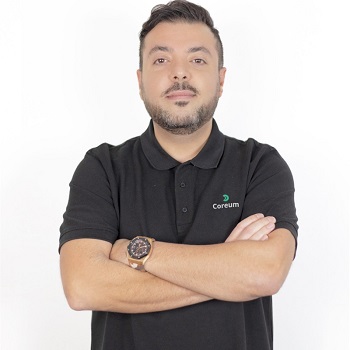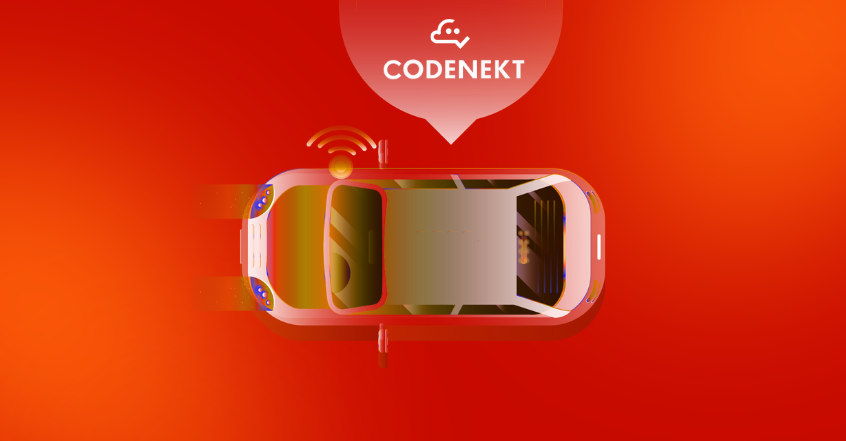Client
CodeNekt
Industry
Automotive, Mobility-as-a-Service, Digital Identity, DPP
Product Used
Zeeve Cogitus + Avalanche L1 Stack
- Full Avalanche Layer1 blockchain deployment for vehicle identity and lifecycle tracking.
- Dynamic NFT-powered digital passports for vehicles with live transactional data.
- Dedicated RPC endpoints and TraceHawk Explorer integrated for full ecosystem transparency.
- Enterprise-grade uptime, real-time observability, and infrastructure built to scale with European-wide adoption.
- Already integrating with Euromaster (Michelin Group), targeting 10,000 users by year-end.
The goal is simple: eliminate fraud, reduce paperwork, and give control of vehicle data back to those who use, maintain, and insure them. But behind that simplicity lies a sophisticated architecture—powered by a dedicated Layer 1 blockchain launched with Zeeve.
Lack of a unified data source
Operational overhead and data loss
No infrastructure for mobility finance innovation
Poor visibility into ESG and compliance metrics
To enable this, CodeNekt launched a dedicated Layer 1 blockchain built using the Avalanche L1 stack. Unlike building on a shared chain, Avalanche L1 gave CodeNekt its own economic zone with customizable gas fees, validator rules, and performance configurations. This was essential to power the real-time demands of their system: instant ownership transfers, live recall logs, and repair events written directly to the chain.
But building and maintaining this L1 infrastructure required enterprise-grade uptime, tooling, and support—especially for an application with compliance implications across Europe. That’s where Zeeve stepped in.
End-to-end deployment of Avalanche L1
Cogitus by Zeeve provisioned, configured, and launched the entire blockchain stack—setting up CodeNekt’s sovereign chain on Avalanche with custom parameters for gas pricing, block time, and validator access. This gave CodeNekt complete flexibility to build its vehicle identity protocol as a foundational layer.
TraceHawk Explorer for ecosystem trust and visibility
Transparency is critical when a blockchain is recording legal and regulatory events like emissions compliance or insurance status. Cogitus by Zeeve integrated its in-house TraceHawk Explorer directly into CodeNekt’s chain, enabling real-time auditability for all stakeholders—from service centers and regulators to end users and insurers.
Dedicated RPC infrastructure for performance and control
With service logs and transactions coming from thousands of garages and enterprise apps, CodeNekt needed performance at scale. Cogitus by Zeeve provisioned isolated load-balanced RPC endpoints with no latency bottlenecks—allowing CodeNekt to maintain full control over third-party integrations without sacrificing access speed.
24/7 monitoring for infrastructure reliability
Vehicle data doesn’t sleep. To ensure uninterrupted availability, they enabled automated monitoring and alerting across the network, along with a support model for issue resolution, performance tuning, and failover management.
Built for scale from day one
The infrastructure is engineered to support thousands of concurrent users and millions of events—critical for CodeNekt’s rollout across Europe and its expansion to thousands of service centers, insurance providers, and fleets.
- Only users owning a Memento Soulbound NFT can make a deposit.
- Superusers can perform unrestricted L1→L2 operations. Superusers are privileged roles (protocol admins or authorized institutional actors) who have elevated permissions.
This infrastructure enabled Memento to do private transactions, permissioned onboarding, default interoperability, and a compliance-first architecture trusted by Deutsche Bank, recognized by MAS, and designed for scale.
Infrastructure engineered for high-stakes uptime
Built-in tooling for ecosystem-wide participation
Scalable backend tuned for growth
Proactive support and lifecycle maintenance
Fleet managers use the SaaS platform to monitor Total Cost of Ownership and automate compliance. Individual users manage service records and receive AI-driven maintenance alerts. Garages record events that trigger insurance flows or emission log updates—all written to the L1 chain.
The $CDK utility token is live, powering both transactional gas and incentive logic across the ecosystem. New partnerships are being negotiated to bring in booking automation, usage-based insurance, eco-driving incentives, and even fractional vehicle ownership—all backed by CodeNekt’s blockchain as the source of truth.
This kind of readiness arrives at a moment of accelerating demand. The onchain Real-World Asset (RWA) market reached $22.6 billion in May 2025, with a 7.5% monthly growth rate. Institutions are entering the space, and infrastructure like Memento ZK Chain is what they’re looking for—EVM-equivalent, compliant by design, and extensible for cross-chain operations.
Delphi Research and others have already flagged Memento as a model for what compliant rollup infrastructure should look like in the next phase of Ethereum adoption.
And at the heart of it, Zeeve’s RaaS platform provided the foundation to bring it to life.
With Zeeve, you can deploy a scalable, multi-node, sovereign Avalanche L1 testnet—fully EVM-compatible, with custom tokenomics, low fees, and enterprise-grade uptime—at a fraction of the industry cost.
Now Live: L1 testnet Infrastructure for $50/Month (Regular $995). We waived off the one-time setup fee of $2,000. Infrastructure is hardened for real-world adoption, as seen in CodeNekt. This subsidized pricing is valid for the first 6 months. Mainnets are also available at attractive pricing.
Let’s build your chain—before someone else builds it better.
Our Clients and Partners Trust us
Zeeve is trusted by 30,000+ developers & web3 startups and 30+ enterprises to build, launch
and scale Blockchain dApps, networks and consortiums.






























































